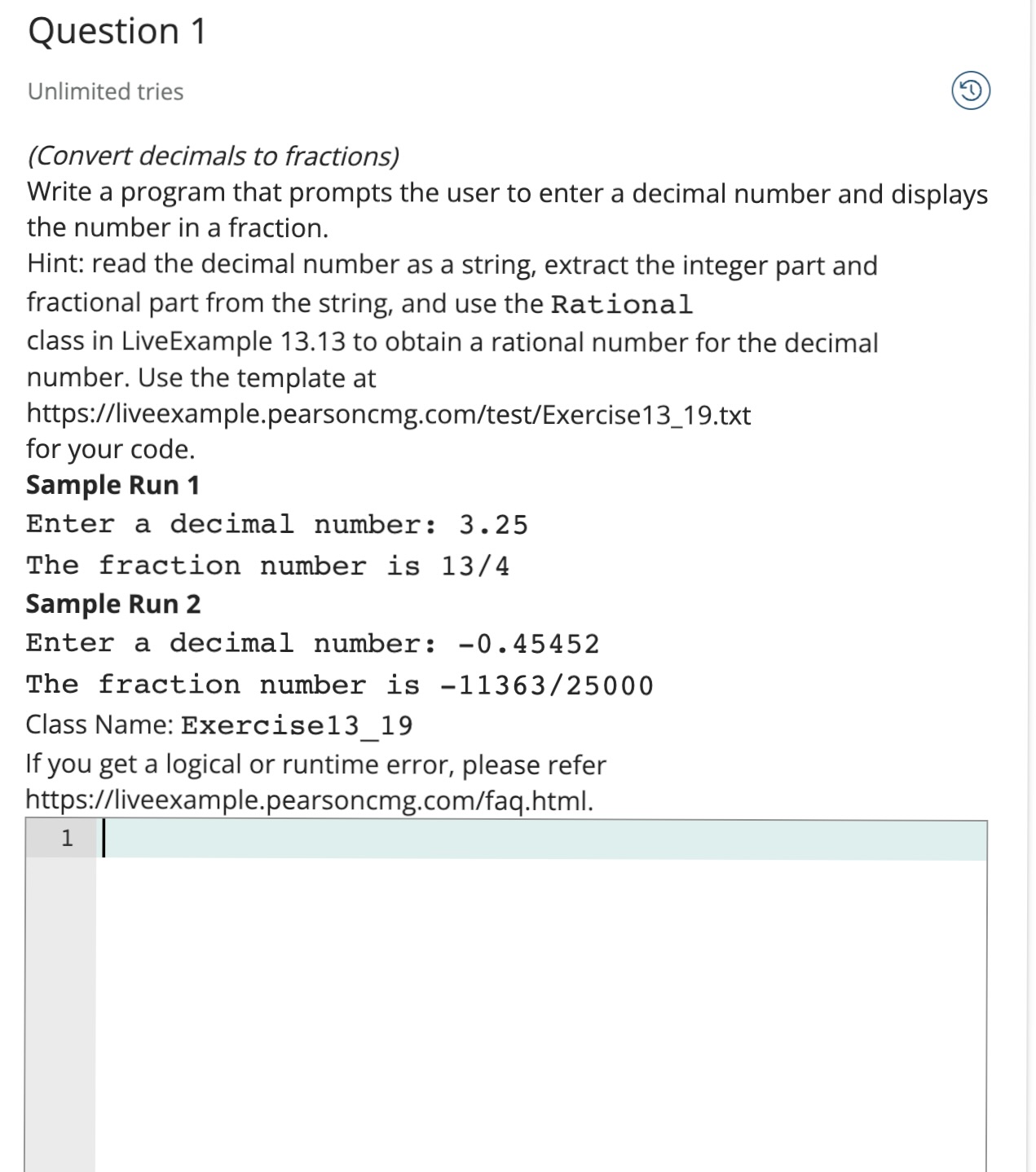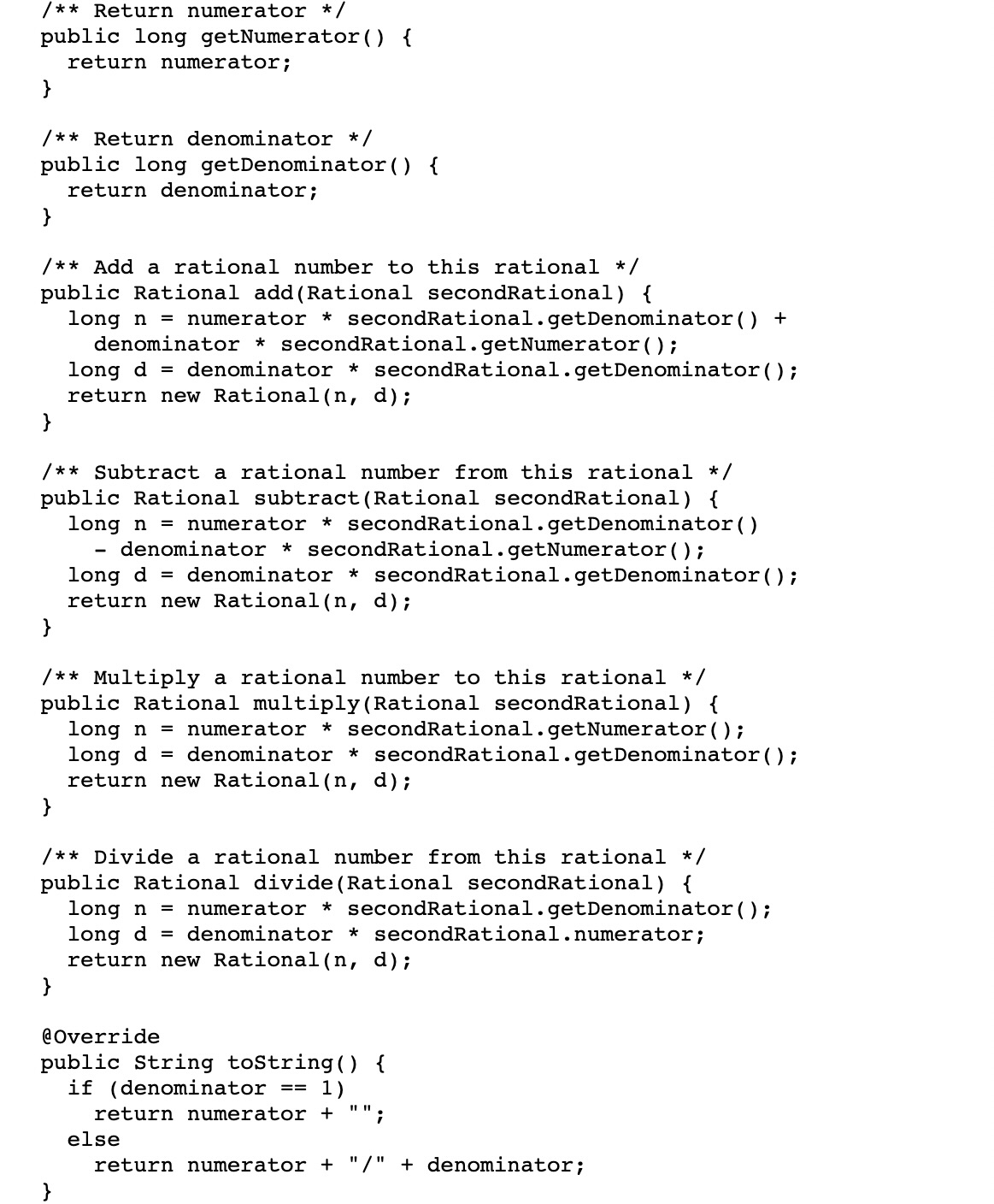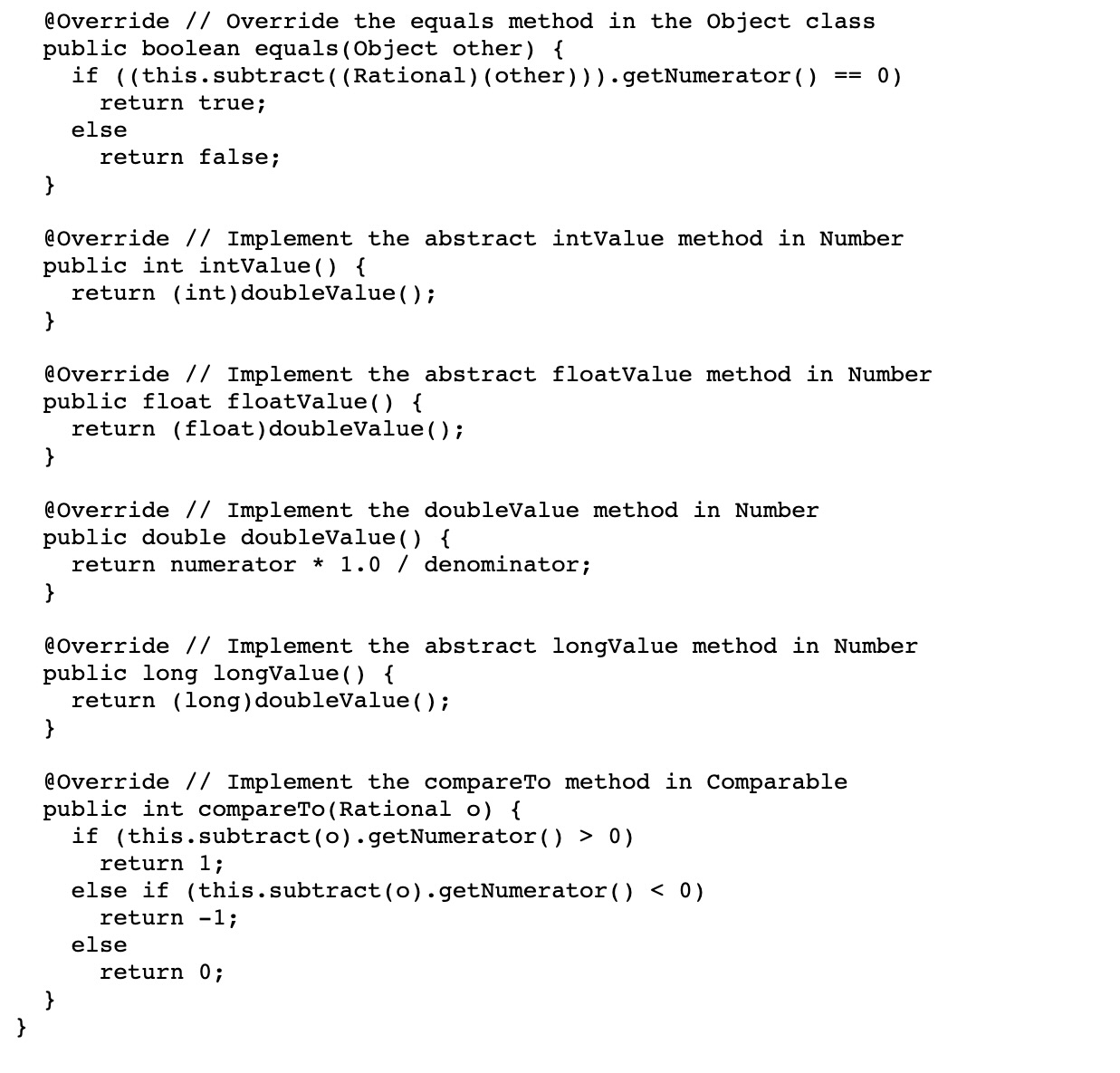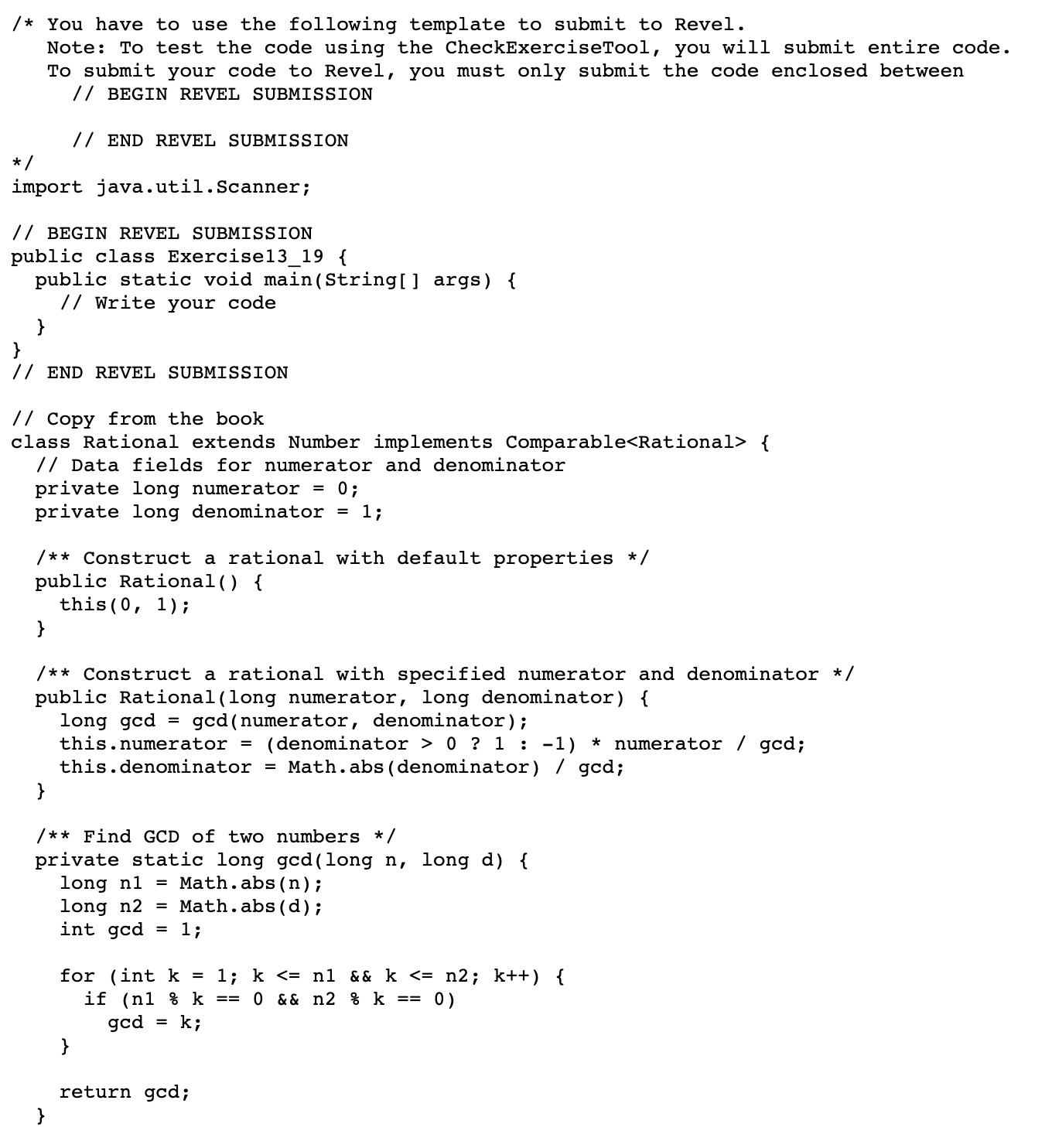Answered step by step
Verified Expert Solution
Question
1 Approved Answer
Question 1 Unlimited tries (Convert decimals to fractions) Write a program that prompts the user to enter a decimal number and displays the number




Question 1 Unlimited tries (Convert decimals to fractions) Write a program that prompts the user to enter a decimal number and displays the number in a fraction. Hint: read the decimal number as a string, extract the integer part and fractional part from the string, and use the Rational class in LiveExample 13.13 to obtain a rational number for the decimal number. Use the template at https://liveexample.pearsoncmg.com/test/Exercise13_19.txt for your code. Sample Run 1 Enter a decimal number: 3.25 The fraction number is 13/4 Sample Run 2 Enter a decimal number: -0.45452 The fraction number is -11363/25000 Class Name: Exercise13_19 If you get a logical or runtime error, please refer https://liveexample.pearsoncmg.com/faq.html. () 1 /** Return numerator */ public long getNumerator() { return numerator; } /** Return denominator */ public long getDenominator() { return denominator; } /** Add a rational number to this rational */ public Rational add(Rational secondRational) { long n = numerator * secondRational.getDenominator () + denominator * secondRational.getNumerator(); long d = denominator * secondRational.getDenominator(); return new Rat onal (n, d); } /** Subtract a rational number from this rational */ public Rational subtract (Rational secondRational) { long n = numerator * secondRational.getDenominator () denominator * secondRational.getNumerator(); } /** Multiply a rational number to this rational */ public Rational multiply (Rational secondRational) { long n = numerator * secondRational.getNumerator(); long d = denominator * secondRational.getDenominator(); return new Rational(n, d); long d = denominator * secondRational.getDenominator(); return new Rational (n, d); } /** Divide a rational number from this rational */ public Rational divide (Rational secondRational) { long n = numerator * secondRational.getDenominator(); long d = denominator * secondRational.numerator; return new Rational (n, d); } @Override public String toString() { if (denominator == 1) return numerator + ""; return numerator + "/" + denominator; } else } @Override // Override the equals method in the Object class public boolean equals (Object other) { if (this.subtract ((Rational) (other))).getNumerator () return true; } } } @Override // Implement the abstract intValue method in Number public int intValue() { return (int) doubleValue(); else } return false; @Override // Implement the abstract floatValue method in Number public float floatValue() { return (float) doubleValue (); @Override // Implement the doubleValue method in Number public double doubleValue() { return numerator * 1.0 / denominator; } } == @Override // Implement the abstract longValue method in Number public long longValue() { return (long) doubleValue(); @Override // Implement the compareTo method in Comparable public int compareTo (Rational o) { if (this.subtract (o).getNumerator () > 0) return 1; 0) else if (this.subtract (o).getNumerator () < 0) return -1; return 0; else /* You have to use the following template to submit to Revel. Note: To test the code using the CheckExerciseTool, you will submit entire code. To submit your code to Revel, you must only submit the code enclosed between // BEGIN REVEL SUBMISSION */ import java.util.Scanner; // BEGIN REVEL SUBMISSION public class Exercise13_19 { public static void main(String[] args) { // Write your code } // END REVEL SUBMISSION } // END REVEL SUBMISSION // Copy from the book class Rational extends Number implements Comparable { // Data fields for numerator and denominator private long numerator = 0; private long denominator = 1; /** Construct a rational with default properties */ public Rational () { this (0, 1); } /** Construct a rational with specified numerator and denominator */ public Rational (long numerator, long denominator) { long gcd = gcd (numerator, denominator); this.numerator = (denominator> 0 ? 1 : -1) * numerator / gcd; this.denominator = Math.abs (denominator) / gcd; } /** Find GCD of two numbers */ private static long gcd (long n, long d) { long nl Math.abs (n); = long n2 Math.abs (d); int gcd 1; for (int k = 1; k
Step by Step Solution
★★★★★
3.53 Rating (163 Votes )
There are 3 Steps involved in it
Step: 1
Below is the completed Java program for converting decimals to fractions using the provided template ...
Get Instant Access to Expert-Tailored Solutions
See step-by-step solutions with expert insights and AI powered tools for academic success
Step: 2

Step: 3

Ace Your Homework with AI
Get the answers you need in no time with our AI-driven, step-by-step assistance
Get Started


